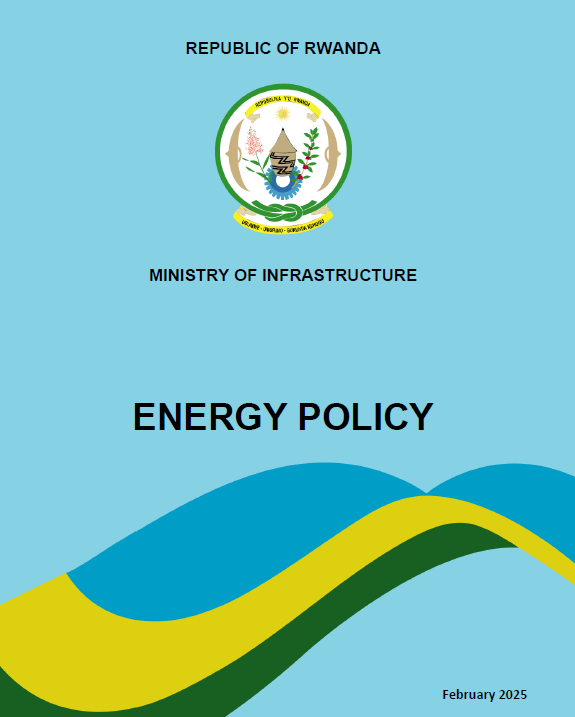A new Energy Policy for Rwanda was unveiled by the Ministry of Infrastructure in February 2025. The Minister for Infrastructure, Dr Jimmy Gasore, opened the GRC led Renewable Energy for Sustainable Growth Conference in September last year, and it is encouraging to see many of the themes discussed there coming through in his foreword and in the policy details. The Energy Policy 2025 is a comprehensive update to the 2015 policy framework, aiming to modernise the country’s energy sector and align with its Vision 2030 and Vision 2050 goals. The policy has a ten year horizon, with specific targets set our for 2030 and 2035. Building on well recognised success in SDG7 progress, the policy doubles down on Rwanda’s commitment to provide universal access to affordable, reliable, and sustainable energy by 2030, with a significant emphasis on renewable energy, private sector involvement, and technological innovation.
A few areas that we feel are particularly relevant to the GRC programme have been picked out here to highlight. For those looking for more detail, the full policy document can be downloaded here.
Renewable energy generation expansion
Building new Hydro, Solar and Wind feature strongly in the policy, with upwards of 300MW, 50MW, and 15MW targeted respectively, alongside developing capacity for geothermal, waste-to-energy, and nuclear generation.
Innovation on solar generation connection
Notable is the acknowledgement that maximising solar resources in particular will require innovation around hybrid solar-storage technologies and developing connection frameworks to integrate solar power into national and isolated grids through direct sale or net metering. This is a challenge area and high impact opportunity that has been clearly identified through GRC knowledge exchange workshops.
Decentralized implementation
The policy specifically supports empowerment of local companies and experts in energy service delivery. The GRC very much supports and aligns with this policy principal and seeks to promote international partnerships featuring local leadership and ownership. The short-term and long-term value of this approach has been clearly articulated in the GRC community of practice discussions.
Addressing affordability
The policy recognises the difficulties around current costs of electricity and the challenges of blanket subsidies. Despite the fact the current electricity tariff is heavily subsidised, creating a drain on public finances, tariffs remain relatively high compared to other countries in the region. Proposed actions include disaggregating tariffs by end-user categories in order to ensure that they fairly reflect the relative contributions to the cost base, and a gradual shift away from indiscriminate subsidies toward “smart subsidies” to ensure affordability of energy services for vulnerable groups.
With these actions being identified across the whole spectrum of on-grid and off-grid connections, we see this as a vital initiative to improving the business models and bankability of projects to promote private sector investment.
The importance of electrical infrastructure
Underpinning the targets around increased renewable energy generation and enhancing access is the reliance on the electrical infrastructure to connect the end-users. Least cost electrification and the importance of modernisation of distribution network infrastructure. Drawing on experiences in Scotland that echo situations across Europe, innovation in the planning and operation of electricity distribution networks is a key enabler for renewable energy. We also note with interest the multiple mentions of minigrids as an important part of the electricity access jigsaw, running contrary to view expressed in GRC networks that minigrids are not required in Rwanda.
Cross-cutting issues
Capacity Building, International Cooperation, R&D and Innovation are all highlighted as critical cross-cutting themes to facilitate the implementation of the policy. In particular, we are pleased to see explicit mention of activities that are fundamental to the GRC programme:
- Collaborate with responsible institutions to adopt and align curricular development in higher learning institutions and TVETs to address the sector strategy and workforce gaps.
- Facilitate international cooperation in education, research, exchange of energy data and capacity development in the Energy Sector.
- Develop specific mechanisms to encourage more academics and researchers, particularly in the higher education sector, to focus their research on topics aligned with national energy priorities.
All in all, we see this as a timely and highly encouraging policy development that gives confidence that our GRC knowledge exchange themes are well grounded in Rwanda’s energy priorities!
